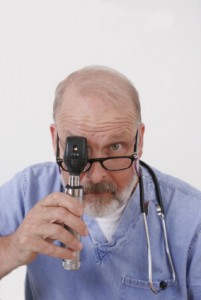Zinc and Macular Degeneration
 Are you someone who has realized that they are suffering from age related macular degeneration? Our sense of sight is something that is incredibly important to us, and the idea of having it threatened can be terrifying. The issue is that age related macular degeneration, often abbreviated to AMD is relatively common and after the age sixty, there is a thirty percent chance that this disorder can be developed. The more research that you do into this condition and into the things that might have a hand in causing it, the more likely it is that you are going to see zinc listed as being something that can help this condition. What does zinc have to do with it, and what do you need to know?
Are you someone who has realized that they are suffering from age related macular degeneration? Our sense of sight is something that is incredibly important to us, and the idea of having it threatened can be terrifying. The issue is that age related macular degeneration, often abbreviated to AMD is relatively common and after the age sixty, there is a thirty percent chance that this disorder can be developed. The more research that you do into this condition and into the things that might have a hand in causing it, the more likely it is that you are going to see zinc listed as being something that can help this condition. What does zinc have to do with it, and what do you need to know?
The first thing that you should consider when you are looking at the role of zinc in AMD is the Age Related Eye Disease Study, also known as AREDS. This study, performed over an average of 6.3 years and including more than 3500 people, eventually concluded that the ingestion a high level of antioxidants and zinc oxide could halt the progression of AMD. While this treatment could not restore vision that had already been lost, it was shown that it had a positive effect on being able to halt the progression of an existing intermediate case of AMD.
What role does zinc play in the body and what might it do to help prevent the spread of this disease? In the first place, although zinc is found in many over the counter and mineral supplements, you’ll find that the amount that is present in this formulation are not going to be enough to affect the disease. First, zinc is thought to contain antioxidant properties, which are generally known to prevent premature aging or degradation of the body. Preparations of this metal do include zinc oxide, which is the typical form in which it is taken.
What is the antioxidant formula that is used with zinc oxide to prevent the ongoing ravages of AMD in an individual? It is important to combine the recommend 80 milligrams of zinc with copper in the form of cupric oxide, due to the fact that it could help deal with the copper deficiency that high amounts of zinc ingestion could produce. It is also important to look at the antioxidants which are required, including 500 milligrams of vitamin C, 400 International Units of vitamin E and 15 milligrams of beta carotene.
When you or someone that you love has been diagnosed with AMD, it can be a traumatizing experience. The thing that you need to remember is that there is a treatment that can be used and it can be used to great effect, as well. Speak to your health care practitioner to see how much this can benefit you!
